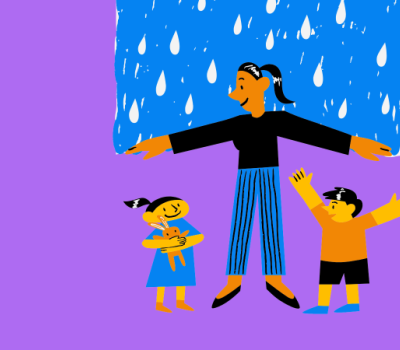
We are proud to release a new report on Utah's system for ensuring that all children appearing in juvenile delinquency court are represented by a defense attorney. And we are happy to report that there is some good news to celebrate in this area of our advocacy work!
In the past two years, the frequency of Utah children appearing in juvenile court without a defense attorney has decreased from about 33% statewide to less than 5%. This new report reveals that Utah children now almost never waive their right to an attorney.
"Who's Helping Kids in Court?" is a follow-up to our 2019 report, "And Justice For All...Kids: A Child's Right to the 'Guiding Hand of Counsel and the State of Defense Representation for Children in Utah's Juvenile Courts," which also explored the issue of whether children in Utah delinquency courts are being given the legal support to which they are entitled.
Read and/or download the full report here.
The right of young people to be represented by an attorney in delinquency court proceedings was established in the landmark case In Gault, 387 US 1 (1967). In that case, the Supreme Court articulated that multiple due process rights must be afforded to children who are facing charges in a juvenile court.
Despite the clearly established rights of young people, both under Gault and in subsequent important legal decisions, many states - including Utah - have struggled for decades to put these promised protections in practice. As this update report shows, though, major policy changes made between 2018 and 2020 appear to have had a very positive impact on the practical fulfillment of Utah children’s right to an attorney.
The key findings presented in this report, for which our team of court observers viewed more than 250 distinct juvenile court hearings across the state, are as follows:
- Overwhelmingly, young people appearing in juvenile delinquency hearings did not waive their right to be represented by an attorney.
- Juvenile delinquency hearings rarely proceeded without defense counsel present, regardless of where the hearing was held in the state.
- While Utah’s juvenile court judges rarely needed to explain the right to counsel to youth appearing in their (virtual) courtrooms, they regularly reviewed other key rights.
- Defense attorney attendance at hearings does not necessarily translate into quality legal counsel for the young people they represent.
Children who have a defense attorney almost always have better legal outcomes in delinquency court than those who don’t. Because court involvement can have lifelong impacts for youth, we have worked with many partners over the past two years to pass positive legislation and enact better practices. "Who's Helping Kids in Court?" shows that these changes, particularly the passage of SB32 during the 2019 legislative session, have worked to vastly improve Utah's ability to ensure children receive the legal representation to which they are legally entitled.
SB32, "Indigent Defense Act Amendments," created a “statutory presumption of indigency” for all youth appearing in juvenile court, eliminating for youth and their families the burdensome process of proving that they were poor enough to receive a state-appointed public defender. This means youth are less likely to appear without legal counsel in the early stages of the delinquency process. Early automatic appointment also seems to reduce opportunities for parental/familial influence over a young person’s decision to waive their right to an attorney. SB32 also ensured that youth would be less likely to appear in review hearings, where their progress on court orders is discussed, without their attorney present. SB32 made clear that only in rare circumstances would a judge release a public defender from representing a client before conclusion of the case.
Read and/or download the full report here.
In addition to our primary findings, our report also discusses the following additional conclusions:
- Online hearings offer several clear advantages that should be balanced against the legal and practical benefits of traditional, in-person hearings. Improvements must be made, though, to incorporate online hearings as a future option.
- Management of professionalism, protocol and participation seemed to be a challenge in some online courtrooms.
- Hearings were often delayed or interrupted due to technical issues.
- Using a single Webex link for a full day of hearings created confusion, and potentially compromised youth and family privacy in sensitive situations.
- Online-only hearings may interfere with some judges’ ability to connect with the youth appearing before them.
- Juvenile court judges’ expertise at interacting with young people - including building rapport, interpreting youth expression and inspiring cooperation - varies widely. Some judges’ inability to communicate effectively with young people may seriously limit their capacity to positively influence children appearing in their courtroom.
- There appear to be persistent difficulties for youth and families who require court interpreters. These challenges likely create serious equity issues for youth appearing in juvenile delinquency court.
In response to our findings, we make several recommendations in this report for policymakers, for the juvenile courts, and also for youth and their families. Those recommendations, if fulfilled, would build upon the progress Utah is already making in the administration of justice for Utah children who become court-involved. As Utah continues to successfully reduce both the size and the negative impacts of its juvenile justice system, we are pleased to report on this additional area of progress, as well as offer constructive feedback for future improvements.











